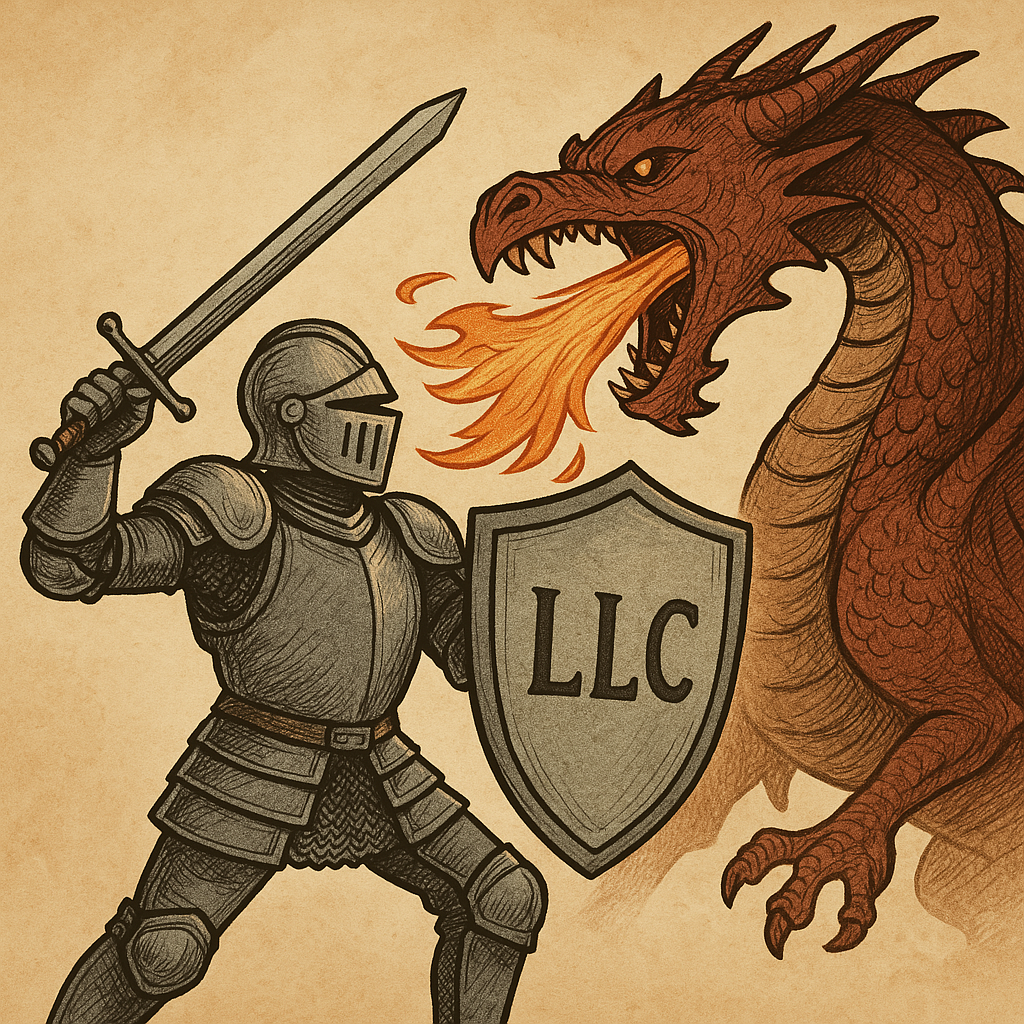How to Avoid Personal Liability
New Paragraph
Steps Every LLC Owner Should Take

One of the primary benefits of forming a limited liability company (LLC) is the protection it offers from personal liability. But that protection is not absolute. Courts can “pierce the corporate veil” of an LLC and hold the owners personally liable if the LLC is used improperly—particularly if it’s treated as an extension of the owner rather than a separate legal entity.
Veil piercing is an equitable remedy that allows creditors to reach an individual member’s personal assets when the LLC has been used to commit fraud, abuse the corporate form, or otherwise defeat legitimate creditor rights. While it is an extraordinary remedy, courts do pierce LLC veils when owners ignore boundaries between personal and business affairs.
If you’re an LLC owner in Colorado or elsewhere, here are the key steps you should take to avoid that outcome:
1. Maintain a Written Operating Agreement
Even single-member LLCs should have a written operating agreement. This document serves as the foundation for your LLC’s governance, ownership, and internal decision-making. Courts are less likely to pierce the veil when the business follows a consistent, documented governance structure.
Best Practice: Sign and date your operating agreement at formation and update it when ownership or management changes occur.
2. Keep Business and Personal Finances Separate
Do not use LLC accounts to pay personal expenses, and do not deposit business income into your personal account. Commingling of funds is one of the strongest indicators courts look for in veil-piercing cases.
Best Practice: Open a separate business bank account, and use it exclusively for LLC transactions. If you need to take money out, do it through documented owner draws or distributions.
3. Adequately Capitalize the Business
An undercapitalized LLC—one without enough money or assets to meet its foreseeable obligations—is vulnerable to veil piercing. Courts look at whether the owners put enough “skin in the game” to operate as a legitimate enterprise.
Best Practice: Make an initial capital contribution appropriate for the size and risk of your business. Document those contributions and avoid taking large draws when the LLC is insolvent.
4. Sign Contracts in Your Representative Capacity
When signing documents, always identify your role in the LLC (e.g., “Jane Doe, Managing Member, XYZ LLC”). Failure to do so can blur the line between you and the company.
Best Practice: Review your contracts, invoices, and email signatures to ensure they clearly state the business is acting—not you personally.
5. Document Major Business Decisions
While LLCs are not required to keep minutes like corporations, it is still wise to document important decisions, such as taking on debt, purchasing equipment, or bringing in new partners.
Best Practice: Keep a folder (physical or digital) of resolutions, meeting notes, and signed approvals for key transactions. This shows the LLC is being operated thoughtfully and independently.
6. Avoid Fraud, Misrepresentation, or Deceptive Practices
Courts will pierce the veil when the LLC is used to commit fraud or wrongfully avoid liability. This includes making false statements to creditors or transferring assets out of the company to avoid debts.
Best Practice: Be honest and transparent in your dealings with creditors, customers, and vendors. If the company is insolvent, don’t take distributions or transfer valuable assets without legal advice.
7. Use the LLC Name Consistently
In contracts, marketing materials, signage, and communications, always use the LLC’s full legal name. This reinforces the idea that the entity—not you—is doing business.
Best Practice: Include “LLC” in the business name on all documents, social media profiles, and client-facing materials.
8. Avoid Informal Transfers of LLC Property
You should not use LLC property—vehicles, equipment, tools—for personal use unless there’s a legitimate, documented reason. Similarly, don’t give away LLC assets to yourself, family members, or other businesses without fair market value compensation.
Best Practice: Treat the LLC’s assets as company property, not personal property. Use formal documentation if anything of value is transferred.
Final Thoughts
Forming an LLC is a good first step toward protecting your personal assets—but it’s not a shield you can neglect. Courts look beyond the legal form and focus on how the business is actually operated. If you treat the company as a separate legal entity, respect its boundaries, and avoid self-dealing, you are far less likely to face a successful veil-piercing claim.
If you're unsure whether your LLC practices are legally sound, consult a small business attorney who can help identify weaknesses and recommend preventive steps.

